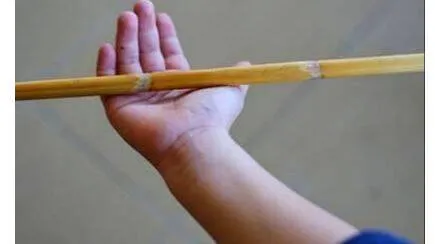

In the old days, if someone got caning by a teacher at school, no one told about it at home, because if they did, they would get a beating from home too. Students used to be caned for showing any inconsistency or not studying the part of the lesson suggested to be studied or not doing the homework. It is rare for the older generation to go through school without being caned at least once. Even if after school education they go to different paths in search of means of life, if they meet a teacher who punished them in the past, the people of that generation talk to that teacher only with respect and love. These loving respects arise from the feeling that the punishments given by that teacher were only meant to save them. The teacher will also show pride in the fact that the mischievous boy he punished in the past has become a good person today.
Perhaps all those days are gone forever, never to return. It can be said that nowadays there are no teachers who bring canes to schools. If a teacher pinches or hits younger students, some parents will not hesitate to press charges and act accordingly to implicate that teacher in other serious cases. Therefore, the teachers also moved away to a safe distance where they were not ready to teach with punishments. It is true that this has created a rift in the warm relationship between students and teachers. It is natural that the student body and the teaching body too change as time changes. Meanwhile, a teacher has no right to brutally beat a student for any reason. Such videos from North India and elsewhere often go viral. The teacher who punishes in this way should definitely be seen as a criminal and punished.
A judgment that sheds light on all these matters came from the High Court the other day. High Court Judge Justice A Badharudeen has stated that it is not a criminal offence for a teacher to punish students for their welfare. The court, which was considering the case that an English teacher caned an 8th-class student of Thottuva School, Ernakulam Kodanad, for her low marks in the class examination, cancelled the proceedings against the teacher with the above observation. The prosecution has not been able to prove that the teacher punished the student with malicious intent. The court also observed that this does not fall within the ambit of Section 82 of the Juvenile Justice Act and Section 324 of the Indian Penal Code. The teacher approached the High Court requesting that the case be quashed while the case registered by the Kodanad police was going on in the Perumbavoor First Class Magistrate Court. The court has also pointed out that criminal charges can be determined in such incidents only after considering the circumstances and the depth and seriousness of the punishment.
In foreign countries, especially in developed countries, if a teacher canes a student, he or she will go to jail. What exists here is not the situation there. Filing a case and starting a fight for even simple issues also indicate the distance that has happened in human relations. The decadence has affected the student body to the extent that the students even threatened to chop off the principal's leg. Schools should not be seen as a place to nurture violent tendencies. Looking back, college is one of the best times of life for many. Students and student organizations need to be wise enough not to spoil those good times with unnecessary violence.